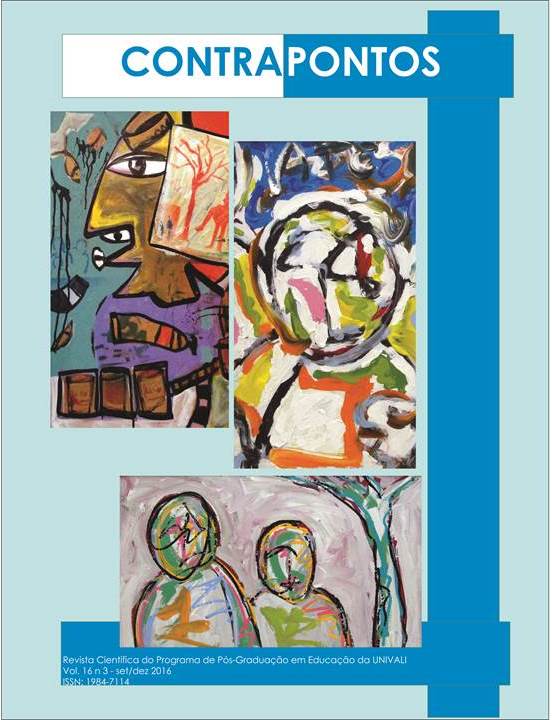A BANKING OPERATIONS SIMULATION IN AN INVESTIGATIVE SCENARIO WITH STUDENTS IN THE EARLY YEARS
DOI:
https://doi.org/10.14210/contrapontos.v16n3.p541-562Keywords:
Mathematics Teaching, Early Years, Scenario of Investigation, Banking operation simulation.Abstract
Through this report of experience, we aimed to investigate the pedagogical potential made possible by the adoption of an investigative scenario in the Early Years of Elementary School, in mathematics classes. For this purpose, activities were conducted involving the four fundamental operations discussed in the Early Years of Elementary School (addition, subtraction, multiplication and division), through commercial transaction simulations (purchases and sales), using a fictitious currency that was specially created. The study was conducted during mathematics lessons in the afternoon period of a 5th grade group at a public school in the municipality of Moreira Sales/PR. It involved the participation of 21 students, aged between 9 and 10 years. A local currency was created, called Fisgraus by the students. The currency was initially acquired through an exchange of plastic bottles. Three problems were worked involving milliliters (ml) and liters (1) volume measures, using the collection of plastic bottles for this purpose. Finally, a one-day sale of snacks was organized, in which students used the coins acquired in exchange for plastic bottles, to buy snacks. Based on the activity developed, we conclude that the work in an investigative scenario provided an ideal learning environment, with good student involvement. It was possible to diagnose some of the difficulties presented by the students with respect to the four fundamental operations (addition, subtraction, division and multiplication). In addition, it enabled the students to work autonomously at problem-solving.
Downloads
Published
Issue
Section
License
Upon acceptance of an article, the author gives full rights of the work to Contrapontos., but retains the authorship. The published work is considered collaboration. Thus, its author will not get paid nor will s/he be charged by Contrapontos. The responsibility of the article solely goes to the authors. Citations and transcriptions are allowed by mentioning the sources.
Â

This work is licensed under a Creative Commons Attribution 4.0 International License.

